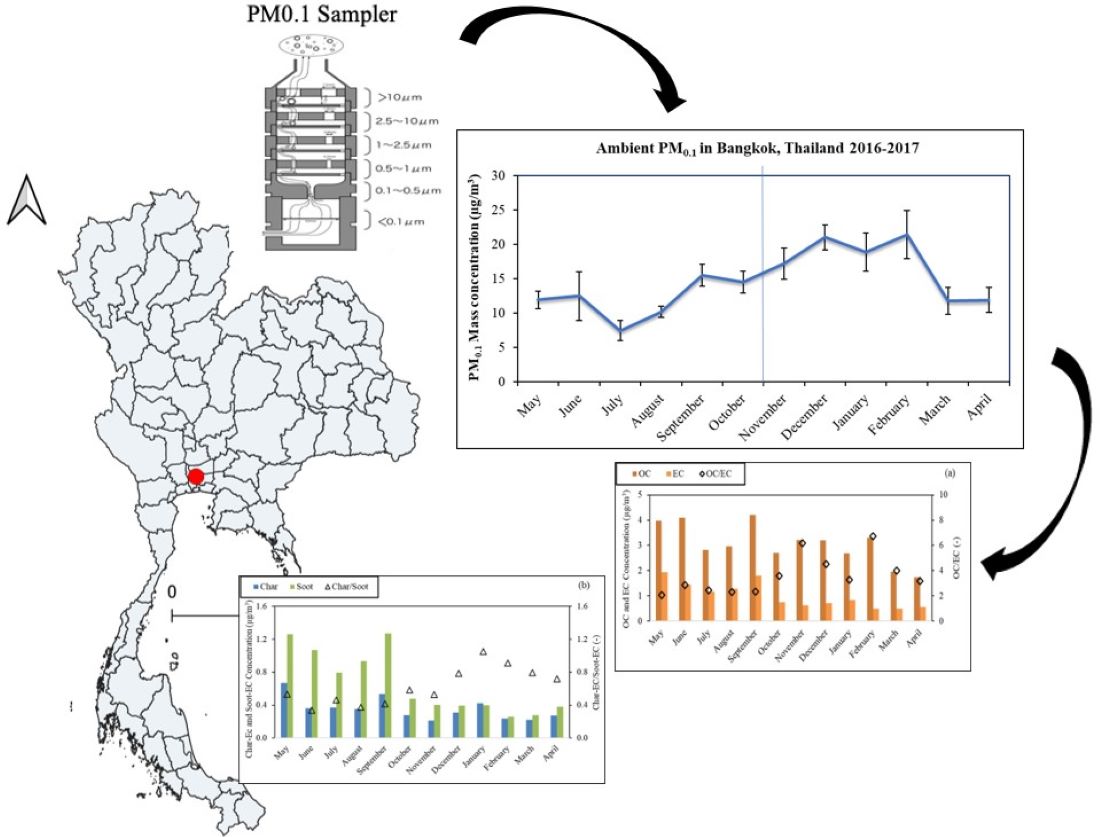Seasonal variations in atmospheric ultrafine particulate matter (PM0.1) were monitored in Bangkok, Thailand, from 2016 to 2017. PM0.1 bound organic carbon (OC), and elemental carbon (EC) were collected by a cascade air sampler that can collect PM0.1 and estimated by a thermal-optical carbon analyzer following the IMPROVE-TOR protocol. The annual average PM0.1 in Bangkok was 14.5 ± 4.7 µg/m3, higher than in large Asian cities like Shanghai and Hanoi. Biomass burning from neighboring areas was shown to increase the particle concentration. Apparent risings in carbon species as OC, EC, and OC/EC ratios in the wet and dry seasons were observed, and Char-EC/Soot-EC displayed that the PM0.1 in the Bangkok atmosphere was influenced mainly by the vehicle exhaust, even though the influence of biomass burning was more sensitive during the dry season. The effective carbon ratio (ECR) displays that carbonaceous aerosol is light-absorbing; the dry season increase contributed to climate and air quality. The finding of this work is of great importance to air pollutants control policies in urban areas.

